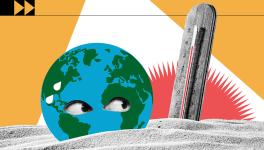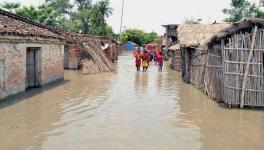Plastic Trouble: Packaging Makes up Nearly 60% of Plastic Usage in India, Says Report
Image Courtesy: NDTV
Patna: Amid the single-use plastic ban, a significant chunk of plastic is being used for packaging in India, according to a latest report. India consumed 18.45 million metric tonnes (MMT) of plastic in 2018-19; 59% of this went into packaging, the report revealed. This means that of all the petrochemicals produced in the country (29.1 MMT), more than 37% was used to manufacture plastics for packaging applications.
The new report was released at a national conclave entitled ‘The Plastic Life Cycle’ by the Centre for Science and Environment (CSE) in Delhi on November 22 to highlight the omnipresent character of the ‘plastic problem’.
According to the report, between 2000 and 2015, the global production of plastic increased by a whopping 79%. The total mass of plastic on our planet is now twice the mass of all living mammals, and about 80% of all the plastics ever produced continues to remain in the environment.
“We are given to understand that the problem of plastic is a waste management issue and not a material production issue because we can recycle it, burn and bury it, or ship it to other countries where it can be handled. But it is not that simple. We have crossed the last frontier on plastic with our current production and consumption patterns. Plastic has not gone away. Plastic that we produce on land is now ending up in our oceans, and from there and elsewhere, into our own bodies,” said CSE director general Sunita Narain.
Narain further said that CSE’s report is an effort to understand the plastic life cycle and the plastic pollution challenge from the perspective of different stakeholders who are integral to the landscape. The report, thus, is an extensive assessment of the roles played by stakeholders from the petroleum, petrochemical and plastic industry; the biodegradable and compostable plastic industry; and producers and brand owners to retailers and consumers; the formal and informal sector recyclers and aggregators; and end-of-life solution providers.
Atin Biswas, Municipal Solid Waste Management unit, CSE, said, “The coming years are going to be critical for defining how we approach this enormous challenge of plastic waste. The technical capacity of the state governments, ULBs, and other stakeholders would play a pivotal role in achieving a plastic waste-free nation. It is, therefore, imperative to understand the life cycle of plastic to strategise and streamline our approach towards managing plastic waste not only in India but across the globe.”
While releasing the report, Leena Nandan, secretary at the Union Ministry of Environment, Forest and Climate Change, Government of India, said that the issue of managing plastic waste was indeed an extremely complex one, but it is something that can be resolved. In fact, efforts to mitigate the ill effects of plastics have gained traction through the introduction of policies such as a single-use plastic ban and extended producer responsibility. The Swachh Bharat Mission 2.0 has listed plastic waste management as one of its key agendas.
There is an intimate connection of plastic to climate change as well. Plastic production has quadrupled over the last four decades, and if this trend continues, the greenhouse gas (GHG) emissions from plastics alone would reach 15% of the global carbon budget by 2050. In fact, if the plastic industry were a country, it would be the fifth largest greenhouse gas emitter on Earth.
Get the latest reports & analysis with people's perspective on Protests, movements & deep analytical videos, discussions of the current affairs in your Telegram app. Subscribe to NewsClick's Telegram channel & get Real-Time updates on stories, as they get published on our website.























